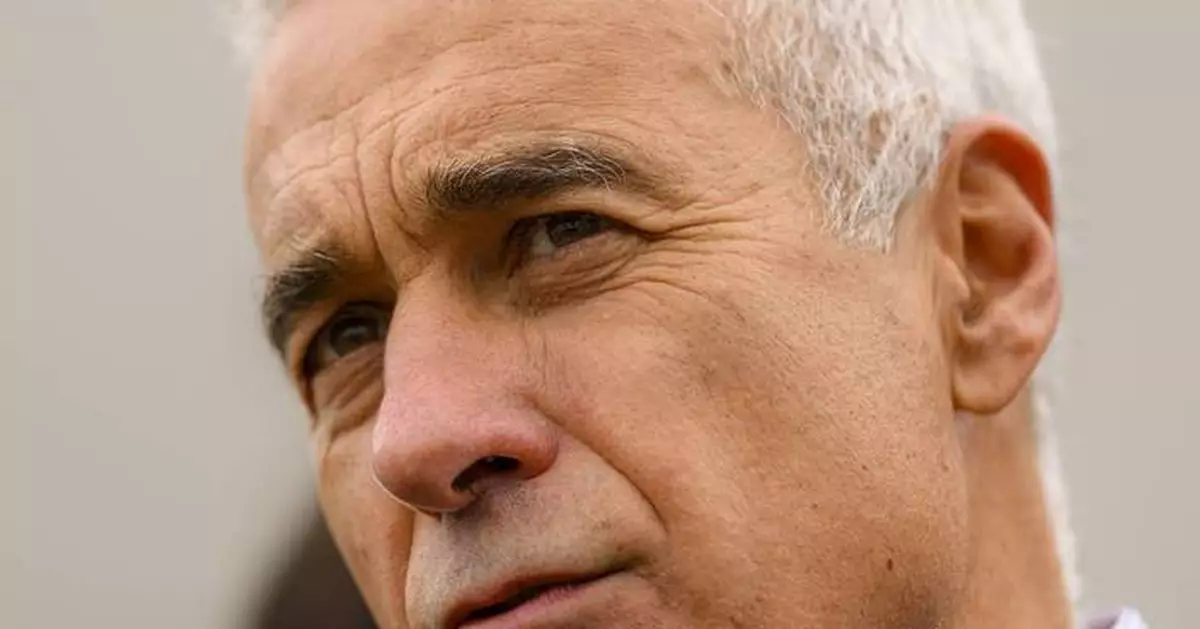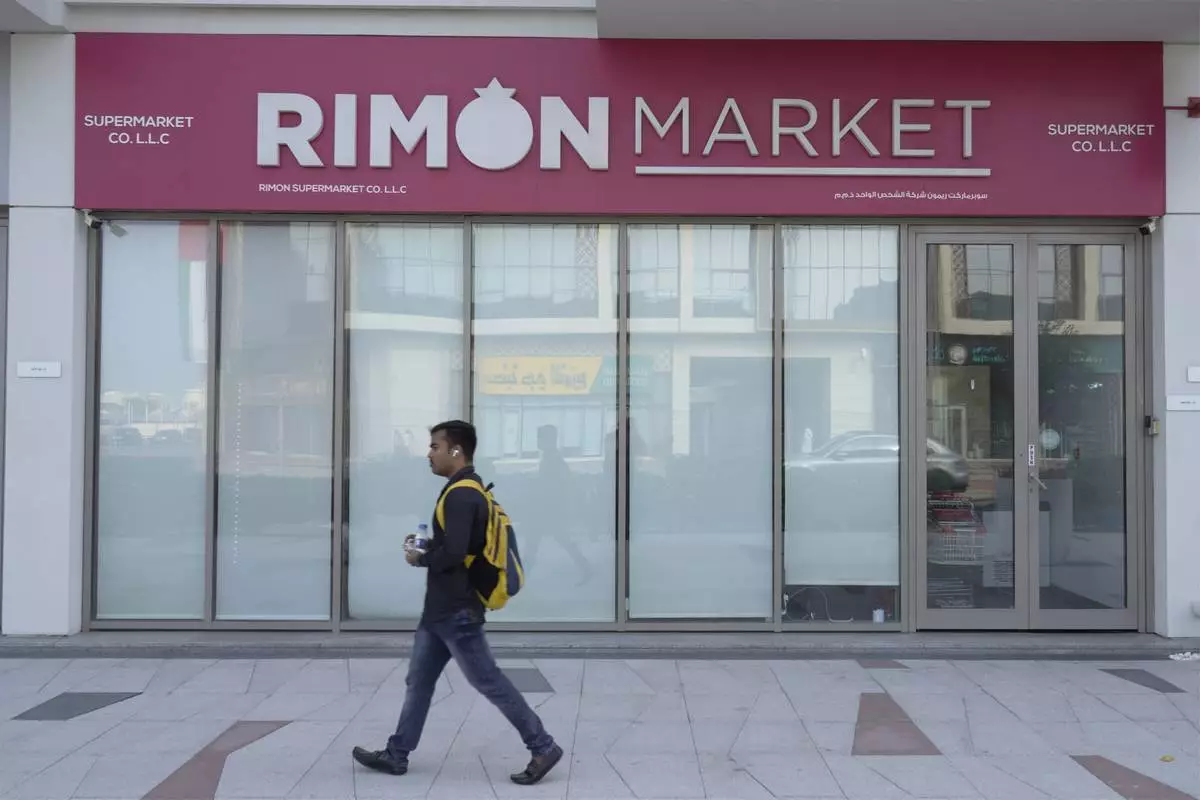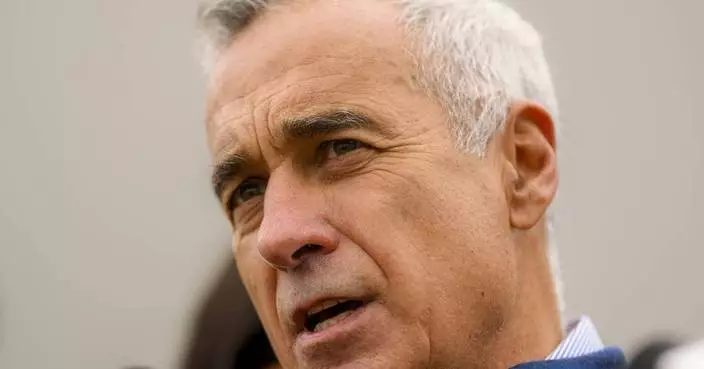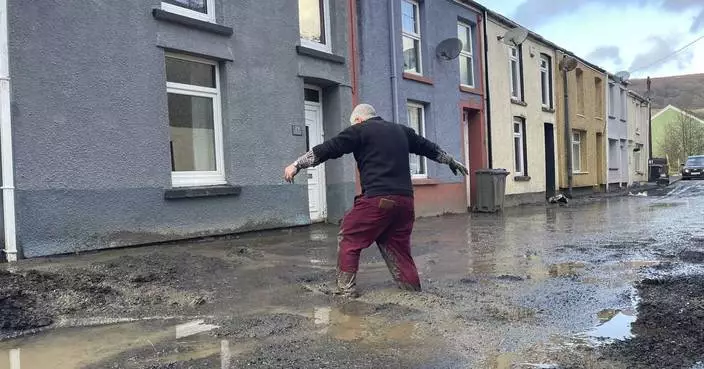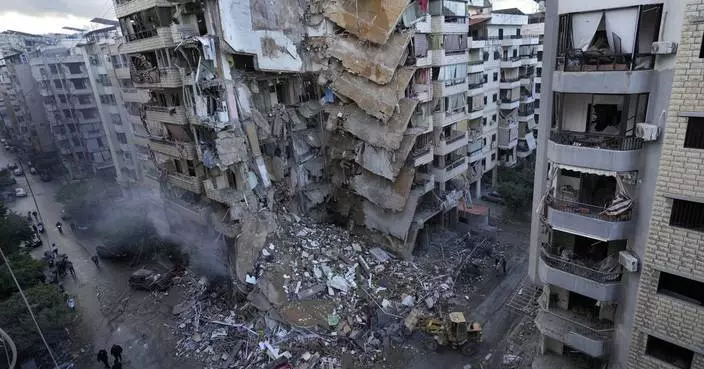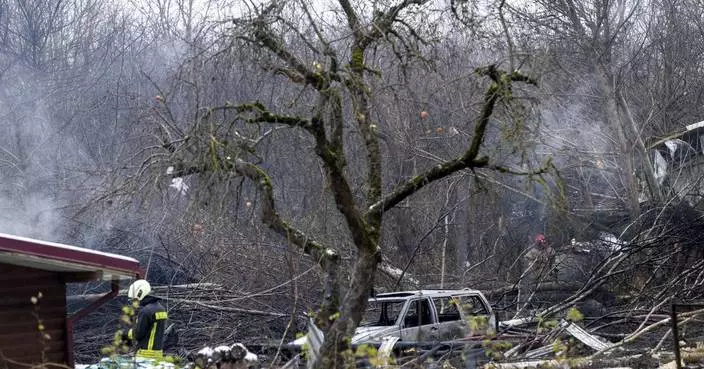BUCHAREST, Romania (AP) — Most polls predicted Calin Georgescu to win less than 10% of the vote in the first round of Romania's presidential election.
However, the 62-year-old obscure far-right populist shook the country's political landscape by clinching the most votes and advancing to the second round to face off against reformist Elena Lasconi of the progressive Save Romania Union party.
He also beat the incumbent Prime Minister Marcel Ciolacu of the Social Democratic Party, leaving the ruling party for the first time in Romania’s 35-year post-communist history without a candidate in the runoff, set for Dec. 8.
The surprising outcome has left many political observers wondering how most local surveys were off, putting Georgescu behind at least five other candidates.
Born in Bucharest in 1962, Georgescu holds a doctorate in pedology, a branch of soil science, and held different positions in Romania’s environment ministry in the 1990s, according to his website. Between 1999 and 2012, he was a representative for Romania on the national committee of the United Nations Environment Program.
Once a member of Romania’s far-right Alliance for the Unity of Romanians, or AUR, Georgescu left the party in 2022 after a period of infighting and being accused by colleagues of being pro-Russian and critical of NATO, the U.S.-led military alliance to which Romania belongs.
He supports the Romanian Orthodox Church and has sparked controversy in the past for describing Romanian fascist and nationalist leaders from the 1930s and 1940s as national heroes.
According to local media, he has praised Russian President Vladimir Putin as “a man who loves his country” and called Ukraine “an invented state,” but he claims not to be pro-Russian. He is married with three sons.
Many observers have attributed Georgescu’s success to his TikTok account, which has 3.7 million likes and 274,000 followers. He gained huge traction and popularity in recent weeks.
According to a report by Expert Forum, a Bucharest-based think tank, Georgescu’s TikTok account has had an explosion which it said “appears sudden and artificial, similar to his polling results.”
On Nov. 18, his TikTok account had garnered 92.8 million views primarily within the last two months, the report states, a figure that grew by 52 million views a week later, just days before the first-round vote.
“The most visible theme pushed by Calin Georgescu on TikTok in the last two months is peace, more precisely the need for Romania to stop supporting Ukraine in order not to involve Romania in war,” the report states.
Another TikTok account, solely featuring Geogescu content, and which had 1.7 million likes late Sunday, appears to have been deleted. It had posts with Georgescu attending church, doing judo, running around an oval track, and speaking on podcasts.
“We need TikTok to shed some light and actually investigate what is happening in Romania,” Madalina Voinea, of Expert Forum, told The Associated Press.
Cristian Andrei, a political consultant based in Bucharest, says that Georgescu’s unexpected poll performance has less to do with his appeal and more due to voters growing tired of an out-of-touch political class.
"He’s just a guy who managed to use the social networks to make himself visible in a void for many Romanians who lost contact with political parties, at least with the elites in Bucharest,” he said. “The mainstream political parties have lost the ability to use these new platforms.”
He added that politicians from Romania’s traditional parties lacked messages of hope and no clear vision for their country ahead of the vote.
“The debates in these campaigns were very low in quality and ideas,” he said.
His positions include supporting Romanian farmers, reducing import dependence, and ramping up local energy and food production. He also wants to establish a “sovereign" distribution model allegedly based on participatory democracy in which “Truth, Freedom and Sovereignty are the axes of values” in Romania’s development.
On foreign policy, NATO and European Union member Romania will respect its obligations, he states on his website, but only “to the extent that they will respect theirs” toward Romania. He also says Romania must play “a more consistent role” in international affairs.
The war in neighboring Ukraine, he said, highlights “the importance of diversifying external relations” and that Romania should strengthen its defense capabilities.
Romania’s presidential role carries significant decision-making powers in areas such as national security, foreign policy and judicial appointments. While it has limited executive power in domestic affairs, a president can veto parliamentary law proposals, and dissolve parliament if a prime minister’s appointment is rejected twice,
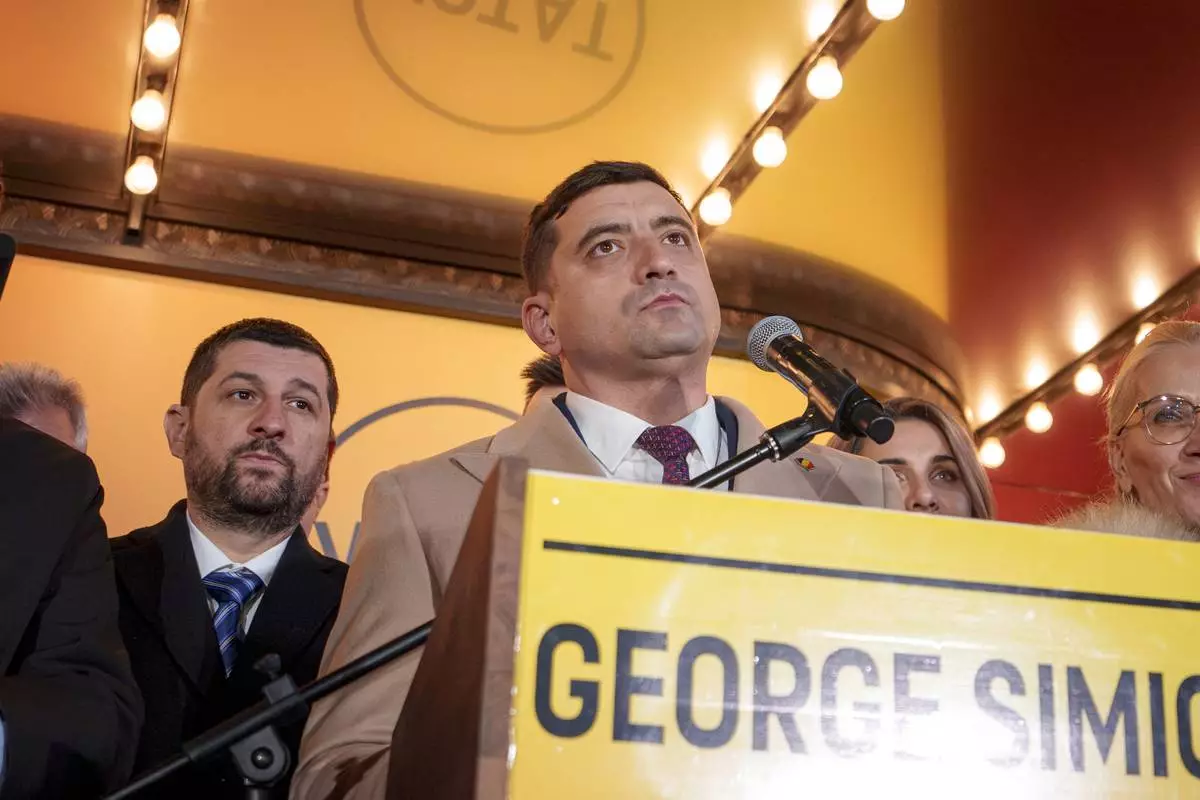
George Simion, the Alliance for the Unity of Romanians (AUR) candidate for president speaks to media after polls closed during the country's presidential elections, in Bucharest, Romania, Sunday, Nov. 24, 2024. (AP Photo/Andreea Alexandru)
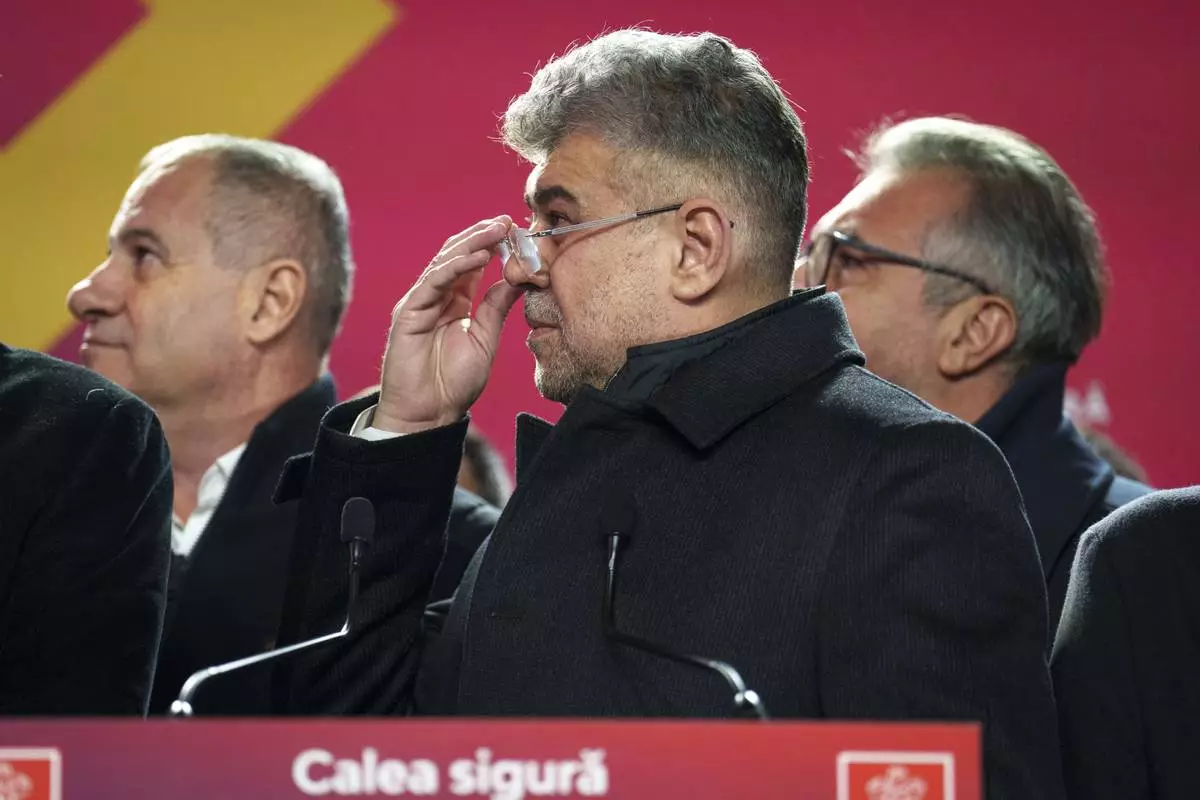
Romanian Prime Minister Marcel Ciolacu, the Social Democratic Party or PSD candidate in the country's presidential elections, removes his glasses while waching exit polls after voting ended, in Bucharest, Romania, Sunday, Nov. 24, 2024. (AP Photo/Vadim Ghirda)
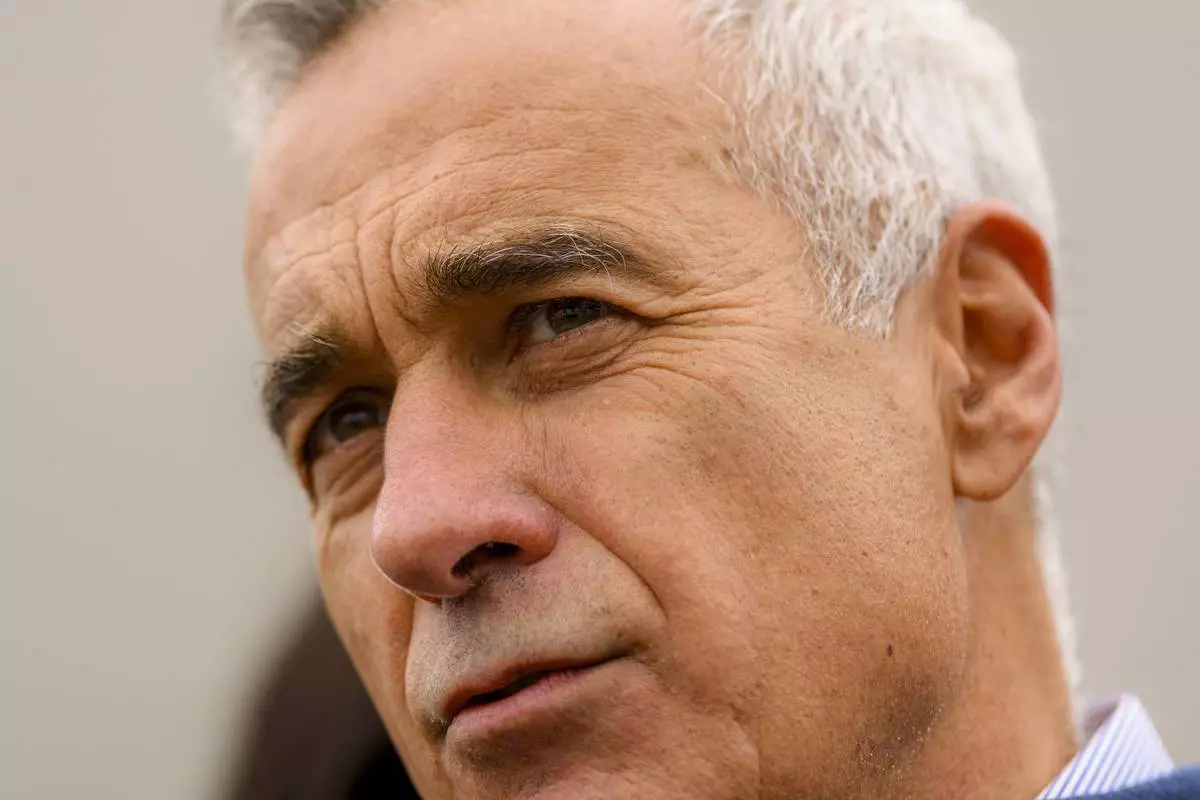
Calin Georgescu, running as an independent candidate for president, speaks to media after registering his bid in the country's presidential elections, in Bucharest, Romania, Tuesday, Oct. 1, 2024. (AP Photo/Alexandru Dobre)


